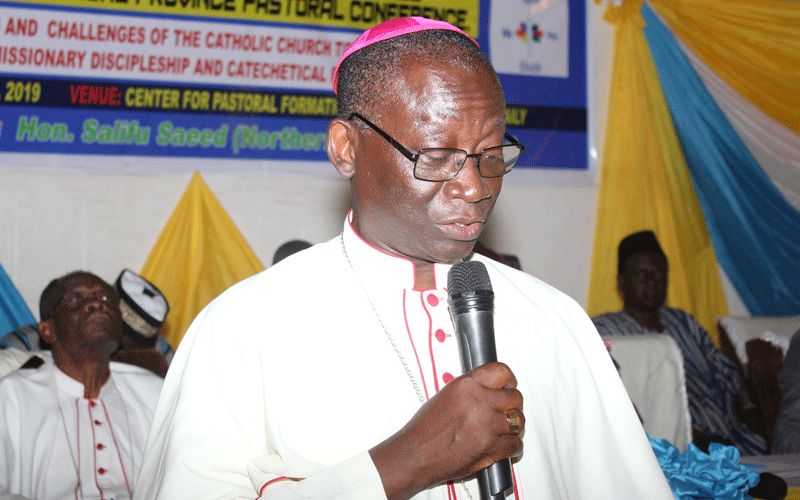Tamale, 05 December, 2019 / 12:06 am (ACI Africa).
While the Catholic population in the world’s second largest continent, Africa, continues to grow a Bishop in the West African nation of Ghana has raised concerns over the declining number of Catholics in his country, describing the phenomenon as a challenge that seems to indicate that pastoral agents “are not reaching all corners of our country” and that requires the application of the “Shepherd’s approach and the Fisherman’s model of evangelization”
Referencing Ghana’s last Housing and Population Census, Bishop Matthew Gyamfi of Sunyani diocese observed, “The 2010 Population Census puts Ghana’s population at 24,658,823, with 71 percent of citizens professing to be Christians.”
“Out of this number, the Catholic population was put at 13.1 percent, a drop of 2 percent from the previous 15.1 percent in 2000,” he noted during his speech at the opening of the 18th Biennial Plenary Assembly of the Tamale Ecclesiastical Province Pastoral Conference (TEPPCON) in Tamale last week.
“The two percent might sound insignificant, but mathematically, it is a huge number and a big loss to the Church in Ghana,” the Ghanaian Prelate observed and added, “The dwindling percentage suggests that we are not reaching all corners of our country and our dioceses.”
According to Bishop Gyamfi, “One big challenge of the Catholic Church in Ghana is the exodus of the youth to emerging Pentecostal and Charismatic denominations. In our poverty, the preaching of prosperity Gospel seems to catch the attention of many Ghanaians including young Catholics. They desire to get rich overnight.”








